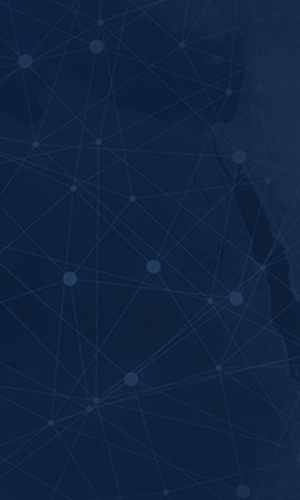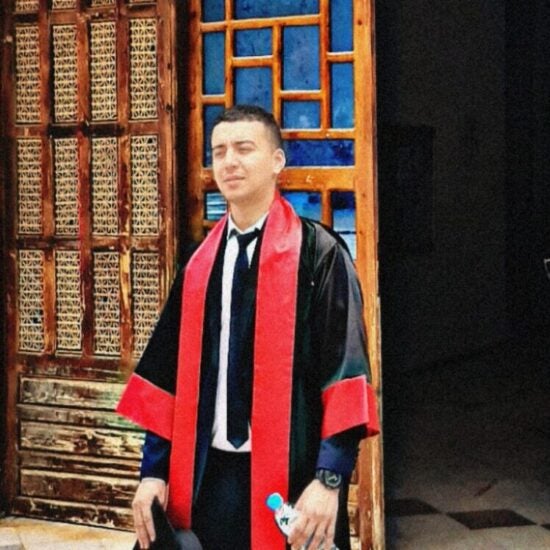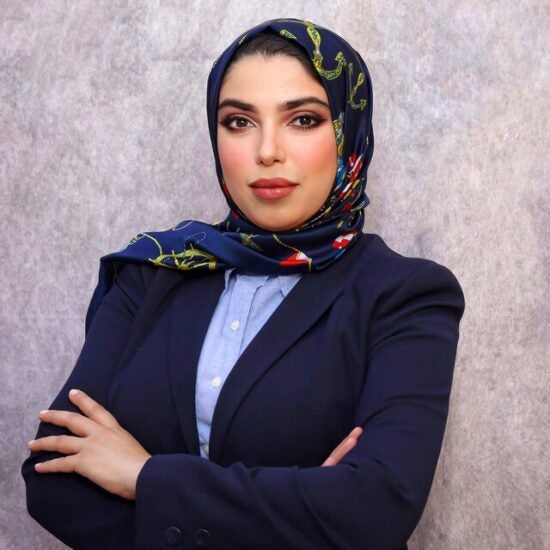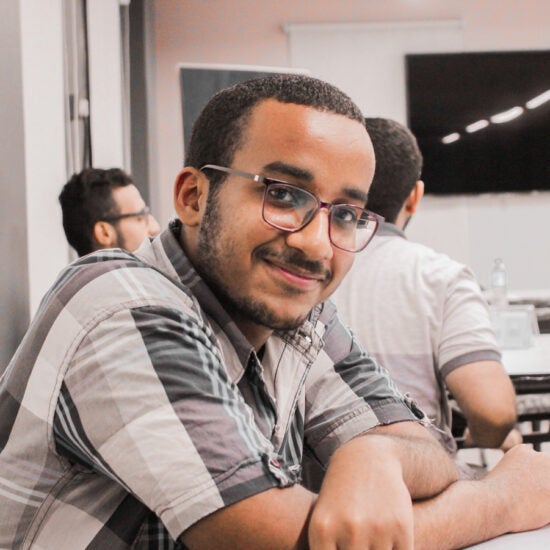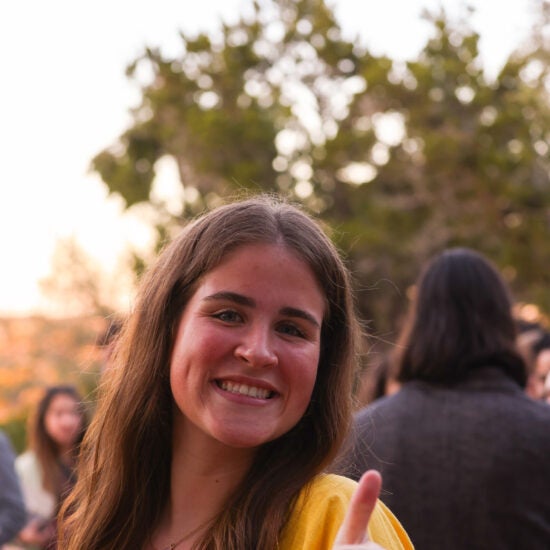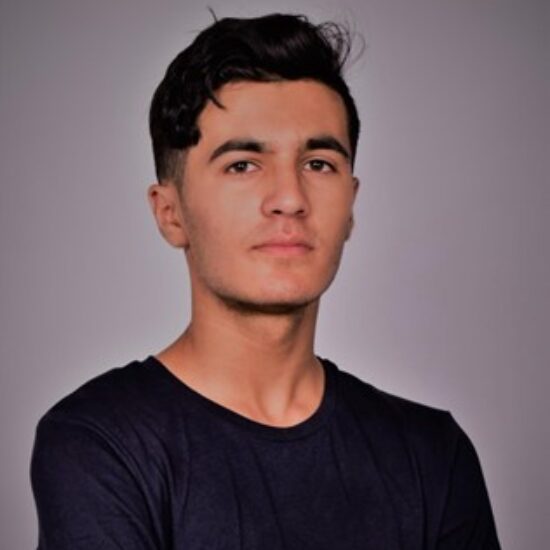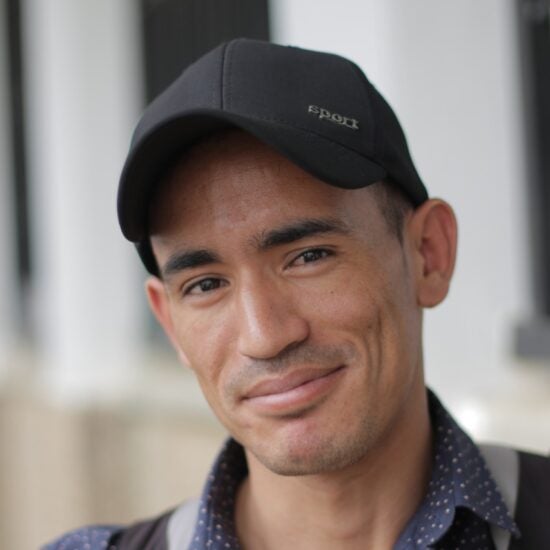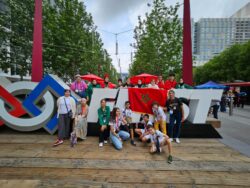 In honor of STEM Day, we’re spotlighting Aya, an alumna of Global Ties KC’s Global Robotics Exchange from Morocco. Aya is a third year high school student studying mechanical engineering and a member of the FIRST Tech Challenge, a team-based competition for students to design, build, and program industrial-sized robots. In her virtual exchange, she partnered with American and Libyan peers to learn new robotics skills, get feedback from professional mentors, and explore different career paths.
In honor of STEM Day, we’re spotlighting Aya, an alumna of Global Ties KC’s Global Robotics Exchange from Morocco. Aya is a third year high school student studying mechanical engineering and a member of the FIRST Tech Challenge, a team-based competition for students to design, build, and program industrial-sized robots. In her virtual exchange, she partnered with American and Libyan peers to learn new robotics skills, get feedback from professional mentors, and explore different career paths.
After receiving the Inspire Award at the Morocco FIRST Tech Challenge Championship, Aya’s team, AFMOS, went on to represent Morocco at the 2024 FIRST Championship in Houston, Texas. As the first and only Moroccan team at the international competition, AFMOS went up against international teams and had the opportunity to meet young people from around the world.
How did you first discover your passion for engineering?
Since I was young, I was told that robotics, mechanics, and electrical things are only for boys, but I always wanted to learn more. During my second year of high school, I had to choose a subject to focus on. I decided to pursue mechanical engineering. I heard a lot of people say that mechanical engineering isn’t for me because I’m a girl, but I knew I needed to choose what piqued my interest. Joining the Global Robotics Exchange helped me develop my engineering skills and grow awareness of the STEM field among other young people in my community.
What did you work on during the exchange? What skills did you develop or hone?
A lot of the program was dedicated to building our robot for the FIRST Tech Challenge. Our robot had to be able to follow autonomous commands, so we worked on things like sensors to help it detect nearby objects and a drivetrain which makes it possible for it to move around the game field. I specifically learned how to code in CAD, a software for designing our robot.
I also gained a lot of non-STEM skills during the exchange. This was the first time I connected with international people, so I was nervous to speak English. It was challenging, but I became better at talking to American people and expressing what I want to say in another language.
The biggest transformation for me was my confidence. I gained the confidence to express my opinions, present our project, and ask questions. At first, I worried that the questions I had were not worth asking. But I reminded myself that I’m free to ask whatever I want. For example, our team had a lot of challenges with the sensors on our robot. By using our peers and mentors as resources, we were able to find a solution and learn a lot more about robotics in general.
How did the Global Robotics Exchange make the competition a unique experience?
We participated in this program a few weeks before the international competition, which gave us an incredible opportunity to refine our robot with the help of other teams and mentors. In the past, when we had a question, we would just do an internet search. It was hard this way because we wouldn’t always find the specific answers we needed. Being able to ask for clarification or an explanation was invaluable. We also got to hear from other teams who had already competed in an international competition. This helped us know what to expect and inspired our presentation.
What are your future aspirations?
I plan to participate in the 2025 FIRST Robotics Tech Challenge and make it to the international competition again with my team. It was an incredible experience to share my culture with peers from other countries and I want to introduce Morocco to many more international people!
By participating in the Global Robotics Exchange, I discovered another passion: learning about new cultures. I’m now interested in traveling to other countries, making new friends, and learning about their different cultures and backgrounds.
Want to help inspire the next generation of innovators and problem-solvers, like Aya? Learn how you can bring an existing virtual exchange program to the young people you serve here.
The Global Robotics Exchange is implemented by Global Ties KC and is supported by the J. Christopher Stevens Virtual Exchange Initiative (JCSVEI). JCSVEI is a U.S. Department of State’s Bureau of Educational and Cultural Affairs program administered by the Aspen Institute.
JCSVEI partners with the U.S. Department of State on the Global Robotics Exchange program. We are reviewing this website to ensure compliance with recent executive orders and other guidance.
